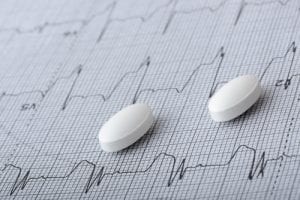Home » Internal Medicine » The Truth about Statins
The Truth about Statins
- Jan, 18, 2018
- Trenton Talbitzer
- Internal Medicine
- No Comments.
The Truth about Statins
Statin drugs are one of the most often prescribed medications in the USA. They are primarily used to treat high cholesterol. Statins work by interfering with the ability of the liver to make cholesterol. Approximately 75% of our cholesterol levels come from the liver and the rest from our diet. Recently, statins have seen more use to help lower the risk of heat attacks and strokes when cholesterol is near normal. People who have a history of cardiovascular issues are being put on a statin to try and lower the incidence of future cardiovascular events. Read on to discover the truth about statins according to new research.
What the Research States
Currently in America, approximately 25 million people are taking a statin drug. Due to new guidelines, 56 million people are eligible to take statins. These guidelines suggest that anyone who has a 7.5% or higher risk of having a heart attack or stroke in 10 years to be offered the medication. The goal of statins is to prevent heart attacks and strokes by lowering cholesterol levels.  Statins have been shown to lower LDL levels, but should they be used as a widespread prevention tool? Here is a hard truth: in low-risk patients, who do not have heart disease, the use of statins does not confer any benefit to mortality. That means that the chance of dying remains the same on or off the drug no matter how much cholesterol is lowered.
Statins have been shown to lower LDL levels, but should they be used as a widespread prevention tool? Here is a hard truth: in low-risk patients, who do not have heart disease, the use of statins does not confer any benefit to mortality. That means that the chance of dying remains the same on or off the drug no matter how much cholesterol is lowered.
In order to prevent one cardiovascular event, 140 patients would have to be treated for 5 years. In other words, 99.3% of statin patients will receive no benefit with regards to cardiovascular event prevention. Those on long term statins have about a 1% chance of developing type-2 diabetes. Put into perspective, that’s the same chance (approximately) they have of preventing a heart attack or stroke.
Statin has become this “miracle drug” that for lowering cholesterol. However, the effects of statins have really only been studied in middle-aged white male populations. Yet, they are being prescribed to females and the elderly. The results are being generalized across different demographics without enough research. Furthermore, a new study has shown that those on long term statins are eating more and have a larger increase in their body mass index (BMI) when compared to those not on the drug. This suggests that statin use may provide false assurance that statins can compensate for poor lifestyle choices.
Conclusion
The use of statin drugs should be carefully considered. Especially after factoring in side effects like muscle pain, liver damage, digestive problems, and mental confusion or memory lapses. In most cases, lifestyle modifications and natural neutraceuticals (specifically made supplements) to support the body can achieve the same results as the use of a statin. Those who have been taking a statin drug long term may have a deficiency in Coenzyme Q10 (CoQ10). CoQ10 is needed for energy production and cell metabolism. When it has been deficient for a long time it can contribute to muscle aches. Call our office for a consultation to check your cardiovascular risk and long-term cardiovascular health.
- Allergy Relief (5)
- Autoimmune (3)
- Back Pain (7)
- Chiropractic (9)
- Food Info (3)
- Health Tips (9)
- Internal Medicine (13)
- MLS Laser (5)
- Nutrition (3)
- Office Information (2)
- Recipes (4)
- Testimonials (6)

Leave a Comment